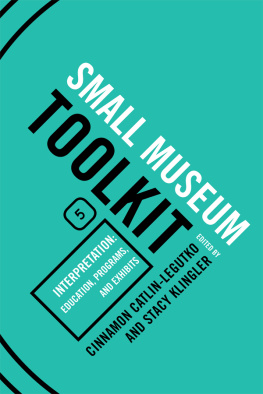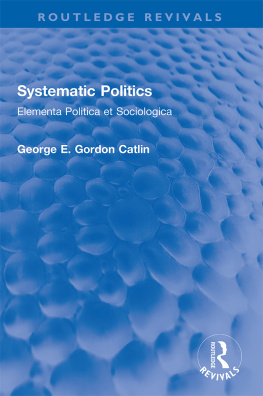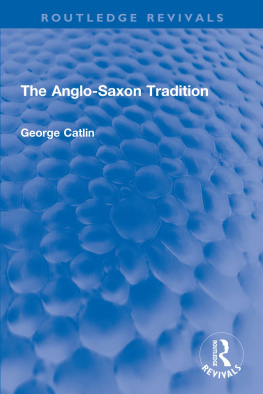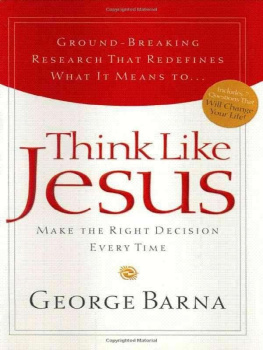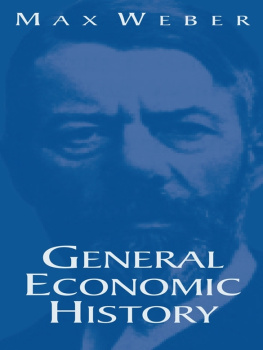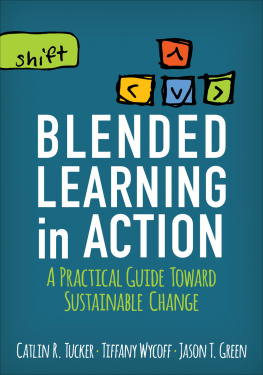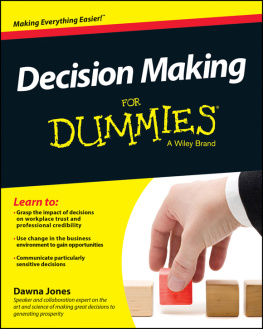Routledge Revivals
Preface to Action
First published in 1934, Preface to Action was written to provoke thought on society and its structure and to enable readers to make a considered judgement at election, particularly those with less time to make their decision.
The book discusses the conflict between wanting to make an informed political decision, and not having the time or all the information to do so. In light of this, Catlin brings together what he considers useful points to help guide readers towards a decision. He outlines his personal opinions and explains his reasons for them. Divided into three parts, the book first explores psychology and considers what institutional forms would best satisfy what he identifies as the major human instincts or impulses. The second part considers the community, whether it is state or nation, and what the best form of it is. The third part is a detailed exploration of the religions of Catholicism, Toryism, Fascism, and Communism.
Preface to Action will be of great appeal to those with an interest in twentieth century British and European history, the history of politics, the history of political thought, and political psychology.
First published in 1934
by George Allen & Unwin Ltd
This edition first published in 2021
by Routledge
2 Park Square, Milton Park, Abingdon, Oxon, OX14 4RN and by Routledge
605 Third Avenue, New York, NY 10017
Routledge is an imprint of the Taylor & Francis Group, an informa business
1934, George E. G. Catlin
All rights reserved. No part of this book may be reprinted or reproduced or utilised in any form or by any electronic, mechanical, or other means, now known or hereafter invented, including photocopying and recording, or in any information storage or retrieval system, without permission in writing from the publishers.
Publisher's Note
The publisher has gone to great lengths to ensure the quality of this reprint but points out that some imperfections in the original copies may be apparent.
Disclaimer
The publisher has made every effort to trace copyright holders and welcomes correspondence from those they have been unable to contact.
A Library of Congress record exists under LCCN: 34027240
ISBN 13: 978-0-367-67883-8 (hbk)
ISBN 13: 978-1-003-13991-1 (ebk)
A PREFACE TO ACTION
Books by the Author
POLITICAL THEORY
THOMAS HOBBES
SCIENCE AND METHOD OF POLITICS
PRINCIPLES OF POLITICS
PREFACE TO ACTION
BRITAIN MUST CHOOSE
In preparation
SOCIAL LEGISLATION
J. S. MILL ON THE SUBJECTION OF WOMEN:
AN INTRODUCTION
LIQUOR CONTROL
CONTENTS
i. Introductory
ii. The Erotic Impulse
iii. The Economic Impulse
iv. The Power Impulse
v. The Religious Impulse
PART II
i. Is the State the Community?
ii. Is the Nation the Community?
PART III
i. The Religion of Catholicism
ii. The Religion of Toryism
iii. The Religion of Fascism
iv. The Religion of Communism
v. The Conclusion of It All
- Original Title Page
- Original Copyright Page
- i. Introductory
- ii. The Erotic Impulse
- iii. The Economic Impulse
- iv. The Power Impulse
- v. The Religious Impulse
- PART II
- i. Is the State the Community?
- ii. Is the Nation the Community?
- PART III
- i. The Religion of Catholicism
- ii. The Religion of Toryism
- iii. The Religion of Fascism
- iv. The Religion of Communism
- v. The Conclusion of It All
Guide
- Original Title Page
- Original Copyright Page
This book is a preface. It is not designed to provide any detailed plan of what politicians ought to do or even to give any dogmatic advice upon how voters ought to vote. It is intended as a provocation to thought on our society and its structure, and not as a tractate for the next election. Its purpose will have been served if, by dissolving certain preconceptions, it prepares the ground for a reasonable and independent judgement.
It is, however, "a preface to action," although not "a plan for action." It is designed for ordinary folk who have no time, before they reach a decision in political conduct, to wait for complete scientific evidence on every point. Were there any pretension in this book to such scientific certainty, I should not have had the temerity to write it.
I recall a passage in Lord Oxford's Life, in which Mr. Desmond MacCarthy expresses his opinion of that statesman. "He had a great aversion from stuffing the blanks in his convictions with provisional thinking."... "His reluctance, in private as well as public, to discuss what was not yet clear to him seems to me the manifestation of a fundamental characteristicone which I personally admire more than any othera perfect integrity of mind." Were we so fortunate as to be privileged never to act until the direction of action was entirely clear to us in all its bearings, no prudent man would ask for better than to be permitted to suspend judgement upon most of the vexed issues of this present age. As Mr. Lloyd George has commented upon his great colleague and opponent, we should then have the merit of correctitude, if not of rectitude.
Minds, however, have to be made up on the balance of probability, in the hope that we shall reach a right practical decision. We should think before we act. But we are under a compulsion, whether we have finished thinking or not, to act. Politics does not move in terms of geological time. A useful purpose seems to be served by assembling considerations which may guide that action.
Much of this book is a matter, not of academic refinement, but of prejudice and taste. What follows is submitted as the prejudices of the writer. It is, in part, the record of a personal pilgrimage among political ideas. He has sought merely to give some reasons for the faith that he holds.
The author, while taking full responsibility, owes his thanks to his friends, Messrs. R. H. S. Crossman, H. Lehrman, Owen Papineau, and Allan Young, for their aid and suggestions, and to his friend, Professor Bronis Paw Malinowski, for assistance in the second chapter (), when the writer would be the first to confess to trespass "outside his own field."


